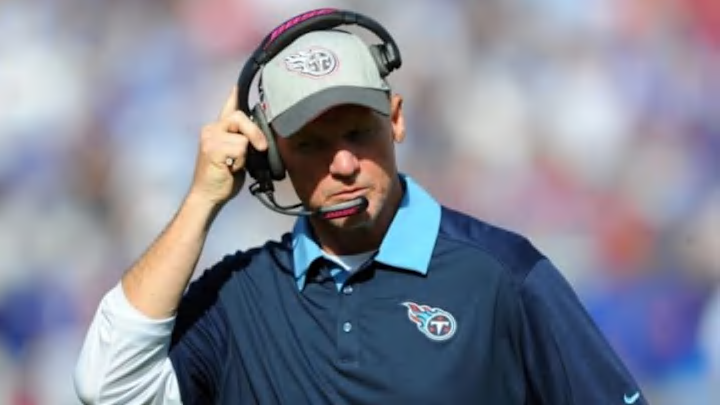
A win-now mentality is nothing new to the NFL. Everybody would like to win early and often, but unlike other eras of professional football, the amount of patience fans, owners and front offices have in the process. Coaches are being fired one or two years after they’ve taken over a team. Quarterbacks are discarded before a season is even over because they’re not playing within the system correctly.
Never mind the fact that several notable former quarterbacks say it takes on average three years to get the hang of a modern pro offense.
More than ever before, the coaching carrousel is spinning faster and faster. Ken Whisenhunt, Lovie Smith, and Mike Pettine were all fired during or after just their second seasons running their teams. Jim Tomsula got the axe after his first. Were they really that bad or the ownership just not willing to wait?
Lovie Smith gets fired. But Jason Garrett and Jeff Fisher get to keep their jobs. You know what??? Man, I'm just gonna go to bed right now.
— Stephen A Smith (@stephenasmith) January 7, 2016
A better question is how should the expectations be for some of these teams? It’s apparent with several of them that they suffered from lack of talent on their rosters, a problem that can’t be corrected in one year. The Super Bowl almost never happens overnight in the NFL. If one doesn’t believe that, look at the stats.
- Bill Belichick: won Super Bowl his second season
- Pete Carroll: won Super Bowl his fourth season
- John Harbauh: won Super Bowl his fifth season
- Tom Coughlin: won Super Bowl his fourth season
- Mike McCarthy: won Super Bowl his fifth season
See? Aside from Belichick, who is a first-ballot Hall of Famer whenever he retires, the common trend for winning the Super Bowl in the modern game is four to five seasons when a head coach takes over. That is the typical time it takes a coach and front office to get the players and systems they want installed and playing at a high level.
Reasonably progress should be seen by year three. What probably saved most of the names listed above is that they all managed to make the playoffs within that window of time.
Can one imagine if Coughlin hadn’t gotten the Giants to the postseason in 2006 despite going 8-8? He was almost fired in 2007 regardless. That is how close New York came to not seeing the greatest upset in NFL history, and it was because the ownership stayed patient with the man and trusted he was on the right track.
This doesn’t mean that every team that waits the minimum three years will have the success they seek, but what is apparent is that the one to two year window is yielding far more failures than it is successes at this point.
